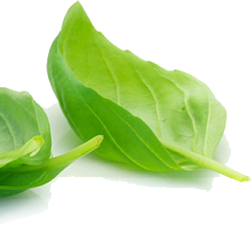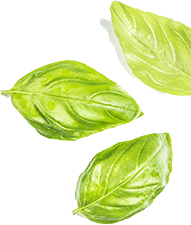



Making the right choices at the grocery store for both you and your family can often be a daunting task. There are so many products to choose from that all seem to do the same thing: feed you.
Nevertheless, the vast majority of products at your grocery store are often associated with a number of different hidden costs.
Opting for organic foods is an effectual choice for personal and planetary health. Buying organically grown food—free of harmful chemicals, bursting with more nutrition, taste, and sustainable sustenance—is a direct vote for immediate health and the hopeful future of generations to come.
At earthAromaa we believe in the power of organics and have compiled a list of reasons we believe organics will help you on your path to becoming happier and healthier.
Here are the top 14 reasons to choose organic foods today:
Genetically engineered (GE) food and genetically modified organisms (GMO) are contaminating our food supply at an alarming rate, with repercussions beyond understanding. Not only does the organic certification ensure there are no harmful chemicals on our food, it also guarantees that they are not GMOs. Among other things, GMOs are often engineered to be used in conjunction with a single harmful chemical, such as Round Up or Agent Orange. Therefore, shopping organic is taking a stance against the large chemical producing corporations that have polluted the world’s food and fields.
.png)
Not ingesting chemicals that are designed to kill is a no brainer, right? Organically certified foods guarantee that the food is free of toxic chemicals and that it’s safe to eat. A sure path to a healthier you!
Eating organically grown foods is the only way to avoid the cocktail of chemical poisons present in commercially grown food. More than 600 active chemicals are registered for agricultural use in America alone, to the tune of billions of dollars annually. The average application equates to about 8 kilograms of chemical pesticides per person every year. The figures for India are even higher.
The National Academy of Sciences reports that 90% of the chemicals applied to foods have not been tested for long-term health effects before being deemed "safe." Further, the FDA tests only 1% of foods for pesticide residue. The most dangerous and toxic pesticides require special testing methods, which are rarely if ever employed by the FDA.
.png)
Organic farming maintains healthy soil Just how your choices at the grocery store dictate your health, they also dictate the health of the earth. Non organic foods are sprayed with extremely toxic chemicals that kill everything other than the crop itself. This includes the living organisms that a plant needs to grow and make the soil nutrient rich. Once those organisms are killed off they are replaced with synthetic fertilizers made up from… you guessed it, more toxic chemicals. Agricultural chemicals, pesticides, and fertilizers are contaminating our environment, poisoning our precious water supplies, and destroying the value of fertile farmland. Certified organic standards do not permit the use of toxic chemicals in farming and require responsible management of healthy soil and biodiversity. According to Cornell entomologist David Pimentel, it is estimated that only 0.1% of applied pesticides reach the target pests. The bulk of pesticides (99.%) is left to impact the environment.
.png)
Nature always adapts. Spraying chemicals to kill bugs only makes them grow, adapt to overcome the horrible toxins we use to kill them. There will always be something that eats the plant, and it will continue to grow and adapt until we no longer have control over it. The toxins we use will eventually become ineffective and plants and pests will become much more harmful.
.png)
Organic farming supports pollinators Herbicides and Pesticides do not differentiate between good and bad bugs, it simply kills them all. In order for there to be life on earth we need to maintain a certain level of biodiversity; this includes everything from the biggest mammals to the tiniest of insects. Organic farming practices healthy growing techniques that aim to maintain that necessary level of biodiversity.
.png)
Growing food organically does not harm the surrounding community in which it’s grown. Unlike non organic practices, organics keep toxins out of the air, out of the drinking water and out of the soil. Farmers aren’t exposed to herbicides and pesticides all day; and if food is bought at the market where it’s grown, it reduces transportation costs and emissions.
.png)
Organic foods get their nutrients straight from healthy, rich, organic dirt. If the dirt is healthy then there should be no need for fertilizers. Non organic crops get their nutrients from synthetic fertilizers made from fossil fuels. Years of not replenishing the soil with organic matter forces farmers to add synthetic fertilizers. This leads to nutrient deficient crops grown from the same thing that fuels our cars. We’ll let you make up your own mind on this one.
Organically grown foods have more nutrients—vitamins, minerals, enzymes, and micronutrients—than commercially grown foods because the soil is managed and nourished with sustainable practices by responsible standards. The Journal of Alternative and Complementary Medicine conducted a review of 41 published studies comparing the nutritional value of organically grown and conventionally grown fruits, vegetables, and grains and concluded that there are significantly more of several nutrients in organic foods crops.
Further, the study verifies that five servings of organically grown vegetables (such as lettuce, spinach, carrots, potatoes, and cabbage) provide an adequate allowance of vitamin C, whereas the same number of servings of conventionally grown vegetables do not.
On average, organically grown foods provide: 21.1% more iron (than their conventional counterparts); 27% more vitamin C; 29.3% more magnesium; 13.6% more phosphorus
.png)
Planting a single crop in a large area (AKA: monocropping) leaves that crop extremely vulnerable to being wiped out by a single disease or bug. Farmers are forced to spray chemicals that kill absolutely everything other than the crop itself. As a result, that crop is the laden with chemicals which humans should not be ingesting. Having lots of different plants attracts lots of different bugs, all of whom end up working in harmony to promote healthy plants and a healthy earth.

Just how the meat of a stressed animal is not as tasty and tender as the meat of a relaxed animal (so we hear – we’re actually vegetarian!), the flavour of a stressed crop will not be as good as that of a crop grown with ease. A plant the needs to dig deeper to find the nutrients it needs is stressed and cannot put that energy towards the growth of its fruit.
Try it! Organically grown foods generally taste better because nourished, well balanced soil produces healthy, strong plants. This is especially true with heirloom varieties, which are cultivated for taste over appearance.

Everything ends up in the ocean. Whether the chemicals are leaching through the soil into aquifers below; being blown into nearby rivers and lakes; or simply running off into the ocean after the rain. The toxins sprayed on our food are made to kill, and will do just that no matter where they are.

Organic farming supports eco-sustenance, or farming in harmony with nature.
Preservation of soil and crop rotation keep farmland healthy, and chemical abstinence preserves the ecosystem. Wildlife, insects, frogs, birds, and soil organisms are able to play their roles in the tapestry of ecology, and we are able to play ours, without interference or compromise.

The rampant loss of species occurring today is a major environmental concern. It is estimated that 75% of the genetic diversity of agricultural crops has been lost in the last century. Leaning heavily on one or two varieties of a given food is a formula for devastation. For instance, consider that only a handful of varieties of potatoes dominate the current marketplace, whereas thousands of varieties were once available.
Now, dig back to recent history's potato famine in Ireland, where a blight knocked out the whole crop, which consisted of just a few varieties, and millions of people died of starvation. Today, most industrial farms also grow just one crop rather than an array of crops on one piece of land. Ignorance is bliss? Or amnesia is disastrous? Crop rotation is a simple and effective technique used in organic agriculture to reduce the need for pesticides and improve soil fertility.
Most conventional food is also extremely hybridized to produce large, attractive specimens, rather than a variety of indigenous strains that are tolerant to regional conditions such as droughts and pests. Many organic farms grow an assorted range of food, taking natural elements and time-tested tradition into account. Diversity is critical to survival.

Farming is in no way an easy job. The work is hard and the reward can be small. In order to keep the extremely expensive, large scale, non-organic farming practice running billions of taxpayer rupees need handed out in subsidies. In addition, the impacts of non-organic practices need to be dealt with… There’s a few more billions in clean up, restoration, and public health. Billions of rupees of taxpayer money goes towards making a big mess, then doing a very questionable job cleaning it up. Red flag? We say yes.
Buying organic food is an investment in a cost-effective future. Commercial and conventional farming is heavily subsidized with tax rupees in India. The cost of 1Kg rice, typically purchased at Rs 30 per kg a head, to be more than Rs. 110 per kg when hidden costs were revealed. The study factored in the hidden costs of state subsidies, pesticide regulation and testing, and hazardous waste and cleanup.
Every year, Indian tax rupees subsidize billions of rupees for a farm bill that heavily favors commercial agribusiness. Peeling back another layer of the modern farming onion reveals a price tag that cannot be accurately measured but certainly includes other detrimental associated costs such as health problems, environmental damage, and the loss and extinction of wildlife and ecology.

Putting our money where our mouths are is a powerful position to take in the trillions of rupees food industry market. Spending rupees in the organic sector is a direct vote for a sustainable future for the many generations to come.

test msg
09 July,20212018-10-25
2017-10-18
Comment Form